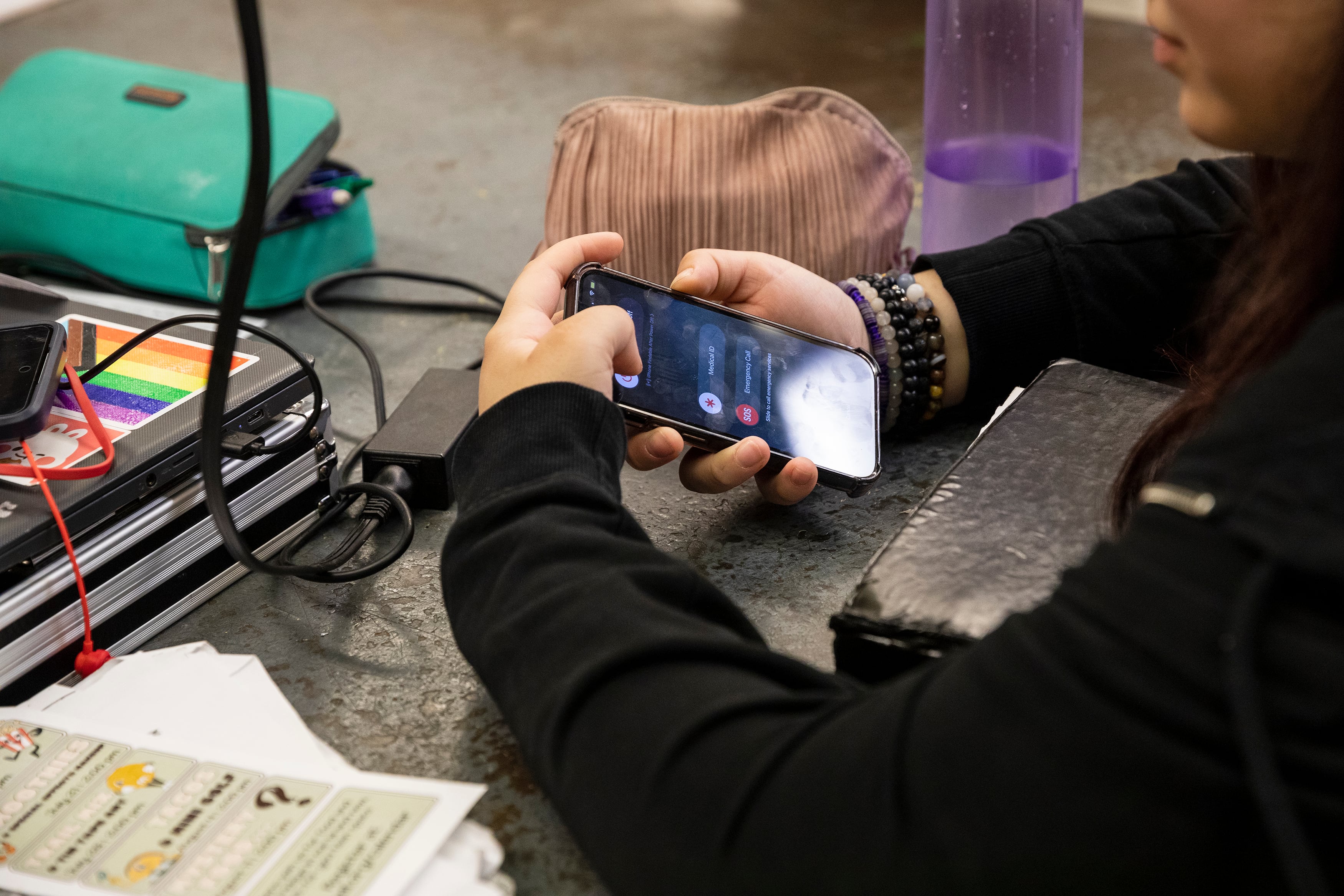Sign up for Chalkbeat Detroit’s free newsletter to keep up with the city’s public school system and Michigan education policy.
Gov. Gretchen Whitmer is expected to call for bipartisan legislation to limit cell phone use in Michigan classrooms during her State of the State address Wednesday.
The policy push is intended to combat the detrimental effects smartphones and social media may have on teen’s mental health and educational outcomes, according to Whitmer’s office.
The announcement comes after a national assessment showed Michigan students are still struggling to catch up to where they were before COVID-19 school closures and amid a national push to restrict cell phone use in schools.
“I think it would be really useful because literally, kids are all day, every day on their phones,” Victoria Garcia, a senior at Western International High School, said on Monday after school. “It’s just so normalized, and teachers just give up.”
Garcia said she could see the potential for cell phone restrictions to help her and other students focus more in class. The 17-year-old also acknowledged that spending prolonged periods of time on social media likely has a negative impact on youth mental health.
Those opposed to such legislation cite safety concerns and parents’ need to get in touch with their children about transportation.
Currently, there is no statewide law requiring districts to set specific policies around student cell phone use. Many local districts in Michigan, however, have adopted their own policies.
Last year, Rep. Mark Tisdel, a Republican from Rochester, introduced a bill that would have created a statewide ban on students using cell phones during class. The bill did not move forward in the legislature.
Eight states have already approved legislation limiting cell phone use in schools. Another six states have created policy recommendations or pilot programs, while legislation has been introduced in 12 states.
Many schools that have implemented such policies have reported anecdotal evidence of fewer suspensions, less bullying, and improved student achievement. But empirical evidence is limited and new research suggests varied results.
A poll by the National Education Association, a teacher’s union, found 90% of surveyed educators supported policies to prohibit cell phone use during instructional time at the district level.
Some education experts and advocates have called on Michigan lawmakers in recent weeks to make drastic changes since the release of the “nation’s report card” showed Michigan fourth and eighth graders did not improve their reading scores in 2024 after a 30-year low the previous testing period.
Michigan’s state assessments last school year showed similar results, as did benchmark assessments that measure student progress at the beginning and end of each school year.
Earlier this month, Whitmer also proposed requiring elementary schools to be more transparent with parents about whether they are using a high-quality curriculum.
Whitmer’s office said she will also propose higher taxes for vaping products because of the industry’s “predatory marketing of children.”
Money generated from the additional taxes will go toward smoking prevention, youth health programs, and cancer prevention, her office said.
Whitmer will deliver her speech to the state Legislature at 7 p.m. on Wednesday. It will be streamed on the governor’s website and broadcast on some local channels.
Hannah Dellinger covers K-12 education and state education policy for Chalkbeat Detroit. You can reach her at hdellinger@chalkbeat.org.






